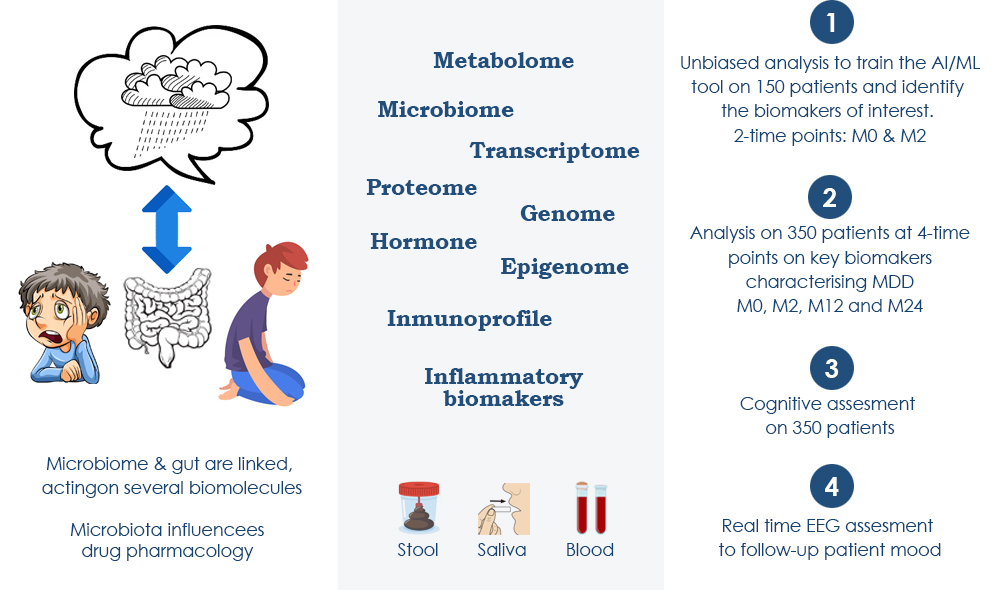Project Impact
OPADE will contribute to create a more resilient, inclusive and democratic EU society
and to promote an open strategic autonomy by leading the development of key digital, enabling and emerging technologies, sectors and value chains. OPADE will allow the clinical validation of several different digital tools analysis non-biological and biological biomarkers to enhance the positioning of EU non only on MDD segment but on the psychiatry field and beyond.
For patients with MDD, through their referent physician, they will have access to their profile to determine the most appropriate anti-depressant. MDD patients will have access to a tool that can follow-up their mood fluctuations and brainwaves for a real-time monitoring of treatment efficacy.
Patients enrolled in clinical trial will have access to empowerment tool to discuss their condition with patients receiving similar treatments and in similar health conditions.
All the data generated during OPADE aims at being correlated through AI / ML tool to issue an exploitable AI-powered predictive tool for personalised medicine.
25% of the EU population each year suffer from depression or anxiety; neuropsychiatric disorders account for 26% of the burden disease in the EU countries and for 40% of years lived with disability, with MDD as the main cause. 50% of the chronic sick leaves. The EU costs are estimated to reach €170bn per year, with 50% of the MDD that remain untreated.
Reputation of the anti-depressant needs to be cleaned with patients thinking such drugs can cause more harm than good. Through the use of personalised medicine, OPADE aims at correlating the omic, genetic and immune profiles of the patients to the right drugs that will be immediately efficient for each patient.
All the data generated during OPADE aims at being correlated through AI / ML tool to issue an exploitable AI-powered predictive tool for personalized medicine.
This predictive tool will be further regulated through the in vitro diagnostic regulation as a class C medical device.
Establish patient profiles to predict and optimise the antidepressant efficacy
Correlate neuroinflammatory indices, target indicators of the microbiome, metabolmic, inmune-profile linked, epigenomic, enzymatic algorithms with symptomatic MDD
Evaluate biomakers that may represent predictive indices of recurrence
Discover new molecular targets for the personalised approach
Evaluate retrospectively, through accurate anamnesis, the onset of depressive symptoms in adolescence
Improve diagnostic
accuracy for
primary prevention
Improve diagnostic accuracy for primary prevention





